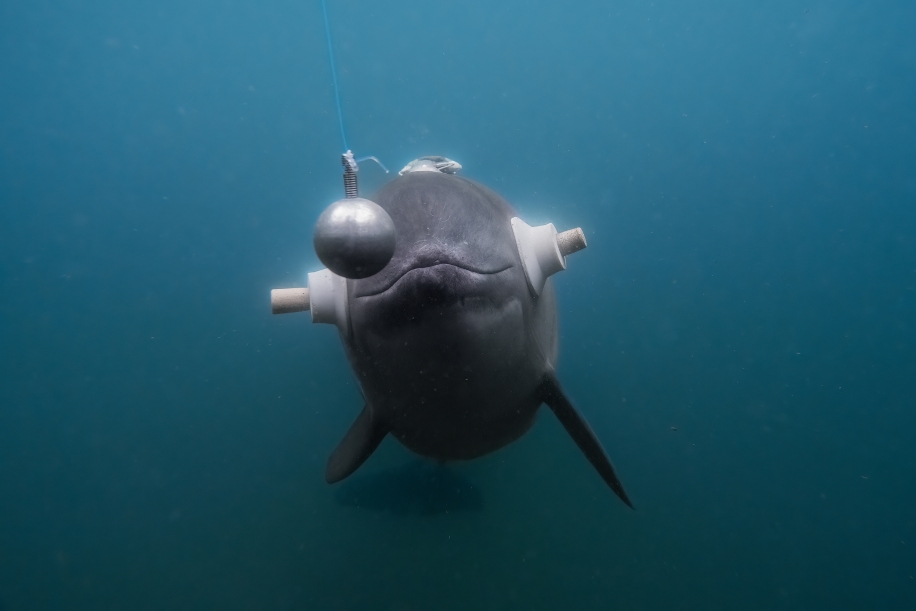

At 28 years old, Freja is the most well-studied and oldest harbor porpoise on Earth. Since 1997, she has been based at Fjord & Bælt, after being by-caught in a fisherman’s net and deemed non-releasable. Freja is trained to partake in non-invasive behavioral experiments, such as this one, in which her eyes are covered by suction cups and she is asked to discern between two targets in the water. Thereby, scientists hope to better understand how harbor porpoises use echolocation to hunt in the wild.
Fjord & Bælt is an approved zoological facility with Danish Veterinary and Food Administration, registered under number DK-7-0001008. Research is performed in collaboration with the University of Southern Denmark under a permit issued by the Danish Environmental Protection Agency (EPA) under the Order of Species Conservation section 12, chapter 1(4).
Saving the Harbor Porpoise
Photographer: Lana Tannir
Exhibit Title: Saving the Harbor Porpoise
Location: Germany
The harbor porpoise, the smallest and only cetacean in the North and Baltic Seas, plays an indispensable role in marine ecosystems. Despite being critically endangered with declining populations, much about its life remains a mystery. Since 2020, it has been listed as critically endangered on Germany’s Red List, facing threats like underwater noise, offshore wind farms, overfishing, bycatch, and pollution. In response, scientists and organizations in Germany, Denmark, and the Netherlands have united to understand and protect these elusive cetaceans.
At the forefront of this effort is Freja, the world’s oldest recorded porpoise, who has lived in a Danish research facility since her bycatch rescue in 1997. Now 28, she has contributed to groundbreaking studies on echolocation, hunting, and metabolism. But it is also the work of organizations rescuing and rehabilitating stranded porpoises, dangerous missions retrieving ghost nets to prevent bycatch, and the development of innovative warning devices designed to reduce fishing net entanglements that drives conservation forward. This story of immense challenge and enduring hope reveals that even the smallest species offer crucial insights into marine ecosystems and should not be overlooked.
Lana Tannir
lana@lana-tannir.com
+4917675838898
www.lana-tannir.com
Make Comment/View Comments